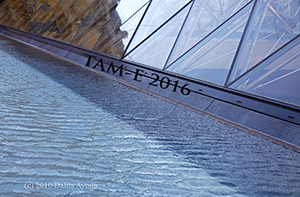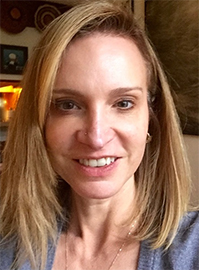Laura MichaelisLaura Michaelis University of Colorado Boulder Serving a Slice of Time: Unifying Tense, Aspect and Modality with Aspectual Constructions Summary To paraphrase the Bard, some verbs are born states and some have stativity thrust upon them. In this talk, I outline a selection-based model of stative type-shifts. This is an enriched version of the framework proposed in Michaelis 2011. This model has the virtues of testability (it is based on recognized stativity diagnostics) and compositionality: unlike a set-theoretic approach (De Swart 1998, 2003), this one roots aspectual meaning in lexical-semantic representation and lexical combinatorics (as mediated by constructions). According to this model, inspired by Bickel (1997), stativizing constructions not only denote states but also select states in the Aktionsart representations of verbs with which they combine. I take Aktionsart representations to consist of states, transitions and state-transition combinations (event chains). A transition is defined relative to a prior or subsequent state, so all intervals that adjoin a transition, including those preceding onset transitions and those following offset transitions, are states, which I will refer to as rests. Because selection can target any rest in an event chain—initial, final or intermediate—it finds states within Aktionsart representations where none have previously been assumed to exist. For this reason, I will show, selection provides a transparent account of a wide variety of stative type shifts, including those that yield progressive, play-by-play, performative, perfect, futurate present and habitual/generic construals of dynamic verbs. I will argue that by viewing stative type-shifts as the products of construction-verb interaction, we can explain: (1) the relationship between a verb's input and output representations, (2) how tenses permute Aktionsart representations, and (3) the functions of the so-called relative past-tense (Declerck 1990, 1995). I will argue that modal predications have the properties of reported-speech contexts and thus that the temporal reference of modal constructions can be represented by the same selection mechanism used to describe the tense-aspect interface. Short biography Laura Michaelis is a Professor of Linguistics, affiliated faculty in the Department of Classics and a Faculty Fellow in the Institute of Cognitive Science at the University of Colorado Boulder. She received her PhD in Linguistics in 1993 at the University of California, Berkeley, writing a thesis on aspect under the direction of Charles J. Fillmore. Her research specializations include the tense-aspect interface, corpus syntax, syntactic innovation, idiomatic meaning, the discourse-syntax interface, etymology and Latin syntax and semantics. She is also one of the leading developers of Construction Grammar, as well as its formalized extension, Sign Based Construction Grammar. Her work has appeared in the journals Language, Studies in Language, Linguistics and Philosophy, Journal of Semantics, Corpora and Cognitive Linguistics, among other outlets. She is the author of Aspectual Grammar and Past-Time Reference (1998) and, with Josef Ruppenhofer, Beyond Alternations (2001), as well as co-editor of the 2003 volume Mismatch: Form-Function Incongruity and the Architecture of Grammar (with Elaine Francis). She is one of the founding editors of the interdisciplinary Cambridge University Press journal Language and Cognition. She has held visiting research appointments at Cambridge University and UC Berkeley's International Computer Science Institute.
|



